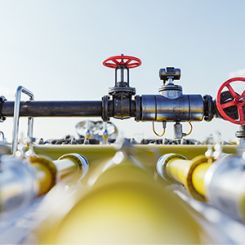Pumps & Systems magazine enjoyed the opportunity to tour Xylem’s research & development (R&D) facility in Stockholm, Sweden and its factory in Emmaboda, southern Sweden, where the company’s latest technology was demonstrated. Xylem began as a small local smithy in Emmaboda in 1901. Today, about 98 percent of production from that plant is exported around the world to solve local water challenges, and Xylem has grown into a global corporation that focuses on the world’s water needs. At 330,000 square meters, manufacturing pumps up to four meters in size, the scale, automation and technological capability of the Emmaboda facility is state-of-the-art. The company says it is Europe’s most advanced foundry for casting complex geometic shapes. Tomas Brannemo, Senior Vice President and President Xylem EMEA said, “Xylem spans the entire cycle of water. Our involvement in the water cycle can be broken down into two parts – water infrastructure and applied water. When we talk about water infrastructure – which encompasses 60 percent of our business – we are talking about helping customers collect water from a source and distribute it to users, and then helping them clean wastewater and return it to the environment. This involves three closely linked applications – transport, treatment and testing – for two types of customers: public utilities and industrial facilities.”
09/29/2015

